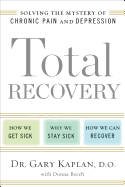
Osteopathic physician Gary Kaplan opens his exploration of chronic pain and depression by stating that while medical professionals are told to think about horses when they hear hoofbeats, his job "is to think about zebras." For Kaplan's patients, assuming the most common or simplest diagnosis is futile; they have confounded the nation's best clinics with an amalgamation of seemingly unrelated symptoms. In his extensive interviews, rather than focusing on their specific "ailments"--like fibromyalgia, depression, back pain or migraines--Kaplan investigates emotional and psychological traumas, as well as physical injuries from the past: "When patients in chronic pain had a history of emotional, physical, and infectious assaults, all of those assaults must somehow be working together within the ecosystem of the body... disease is not an event, but a process."
Through the course of his research, practice and experience, Kaplan finds the commonality that links a 14-year-old snowboarder with reflex sympathetic dystrophy, a 50-year-old consultant with sudden blackouts and tremors and a 30-year-old athlete with crippling back pain and depression: chronically up-regulated microglia (cells that occur in the central nervous system as a primary form of immune defense). Kaplan is then able to focus on healing bodies (rather than repairing parts) by alleviating inflammation in order to restore the quality of life of patients suffering from neurodegenerative conditions. Even readers without chronic pain or depression will find Total Recovery fascinating and will likely think of many loved ones who would benefit from Kaplan's findings. --Kristen Galles from Book Club Classics

